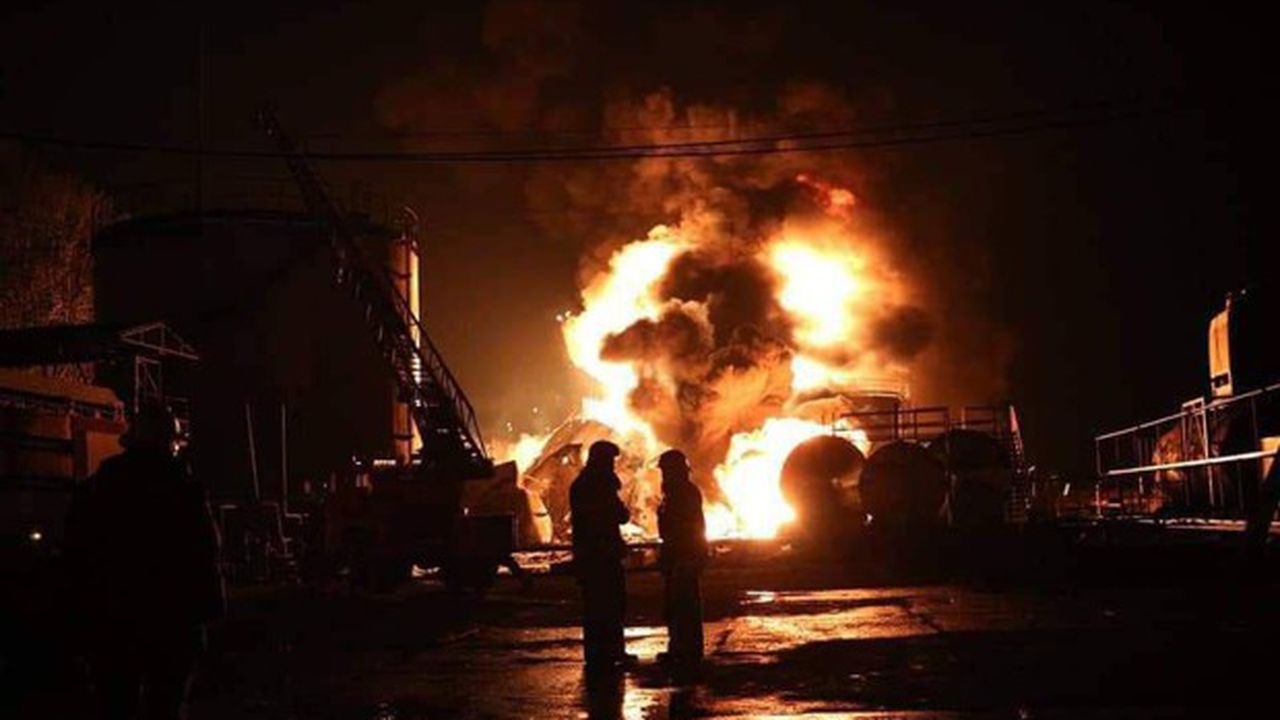Posted Apr 11, 2022, 7:19 AM
The invasion of Ukraine will result in unimaginable economic losses for the attacked country. “The scale of the humanitarian crisis triggered by the war is staggering. The Russian invasion is a blow to the Ukrainian economy and has inflicted enormous damage to infrastructure,” observes Anna Bjerde, World Bank Vice President for Europe and Central Asia.
In its forecasts published Sunday evening, the multilateral institution expects the country’s gross domestic product (GDP) to plunge by more than 45% this year. To oversimplify, half of the Ukrainian economy will therefore be destroyed. Economists warn that the magnitude of the contraction could be higher. Everything will depend on the duration and intensity of the war.
The Ukrainian conflict has deleterious effects on the economies of Eastern Europe and Central Asiaworld Bank
Many parts of the Ukrainian economy have collapsed: government revenues have virtually disappeared; half of businesses have closed; trade in goods came to a sudden halt and economic activity became impossible in several regions of the country, whose infrastructure was damaged, the Bank points out.
The repercussions are expected to go beyond the short-term collapse of domestic demand and exports, as production is marked by the destruction of productive capacities, damage to arable land and a reduced labor supply. , with a quarter of Ukraine’s population internally displaced.
The worst may be yet to come. “The repercussions are expected to go beyond the short-term collapse in domestic demand and exports, as production is marked by the destruction of productive capacities, damage to arable land and a supply of labor. reduced, with a quarter of Ukraine’s population displaced within the country,” the economists say.
A third of the Ukrainian population is in urgent need of humanitarian assistance and poverty will explode compared to the millions of refugees and displaced persons. The Bank calculates that people living on less than $5.50 a day (the upper end of the poverty line) are expected to make up nearly 20% of the population this year, up from just 1.8% last year.
Deep recession in several countries
Ukraine will not be the only country in the area to suffer from the conflict. The Russian economy, in view of the international sanctions, will plunge into a deep recession. The World Bank predicts a contraction in GDP of just over 11% given the collapse of domestic demand linked to job and income losses. Rising poverty, inflation and supply disruptions will reduce consumption while investment will fall due to the withdrawal of foreigners.
Bordering countries, due to their close commercial, financial and migratory links with Russia and Ukraine, will also suffer considerable economic damage, warns the Bank. It predicts, on average, a contraction of the GDP of the Eastern Europe and Central Asia zone of just over 4% this year, against a growth forecast of 3% before the outbreak of the war.
Turkish Resistance
The second largest economy in the region, Turkey is seeing its growth vanish. After a very strong increase last year, it should register a meager increase of 1.4% in 2022, predicts the institution. The war in Ukraine is exacerbating previously seen tensions, including declining investment and resurgence of inflation fueled by multiple cuts in key central bank rates.
Inflation, at its highest for 20 years at more than 50%, is fueled by the fall of the national currency. The war, by causing the rise in the price of raw materials, should generate additional inflationary pressures in a country that is 40% dependent on Russian oil and gas for its energy supply. If Turkey retains a slim hope of seeing its economy grow, it owes it to closer ties with the European Union than with Russia, wants to believe the World Bank.
This is not the case for the countries of Central Asia. The situation is worrying for Kyrgyzstan and Tajikistan since “remittances from Russia by their migrants represent nearly 30% of the GDP of these two republics”, underlines Anna Bjerde. As a result, the Bank predicts a fall of 5% in Kyrgyzstan’s GDP and nearly 2% in Tajikistan’s. The other two republics (Kazakhstan and Uzbekistan) should do better thanks to the rise in commodity prices which will reduce the impact of the recession in neighboring Russia.
–


